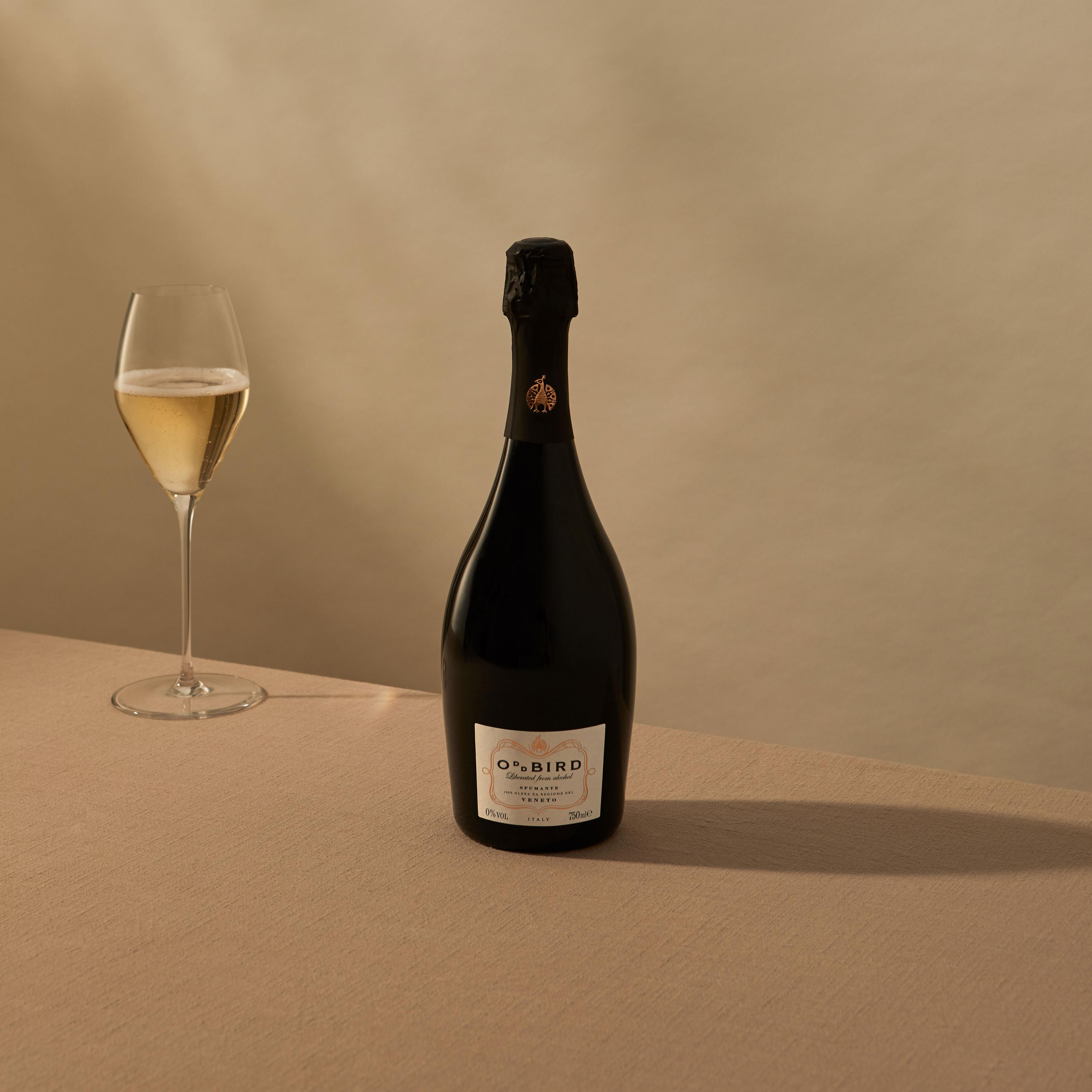“So… what do you think?” It’s Monday, it’s approximately 5:35pm, and I’ve just cracked open a bottle of wine with my girlfriend. “It sort of tastes like peaches,” she says. “I’m getting some notes of elderflower,” I say, trying to sound sophisticated. Neither of these statements are exactly groundbreaking or surprising – both are, in fact, the sorts of clichéd terms that readily spill from sommeliers like swear words slip from the mouths of Glaswegians. The only difference is that the wine causing us to make these utterances (a Spumante from a producer called Oddbird) is completely alcohol-free. And it’s not half-bad. It’s actually, dare I say it, really rather good.
For a little context, I’m trying to become a wine guy. I don’t drink a huge amount of alcohol but, when I do, I try to make sure it’s the good stuff. And a decent glass of wine (or a stiff Negroni) is usually my drink of choice. I’m still thinking about a lovely bottle of Grolleau from Catherine & Pierre Breton that I sunk a few weeks ago over the course of a five-hour dinner. I’m that sort of romantic wine drinker. And eater.
My girlfriend, on the other hand, doesn’t drink. As well as becoming a lot more cognizant of how often I change my bedsheets, one of the major results of our relationship is that I’m much more aware of the non-alcoholic drinks offerings available at bars and restaurants. Or, rather, the lack thereof. After months of research, I’m fairly confident in saying that the alcohol-free section of most menus are limited, to say the least. Especially when it comes to wine.
You’ll generally find at least one alcohol-free beer on the drinks list (it’ll usually be a Beck’s Blue, a Heineken Zero, or – if you’re lucky – a Lucky Saint) yet it’s rare you’ll see even one non-alcoholic wine on offer. Intrigued by why that was the case, I asked a couple of sommeliers I knew why they didn’t have any non-alcoholic wines on their list. One, whose identity I’ll protect so they’re not hounded by press releases from alcohol-free wine brands trying to convince them otherwise, put it simply: “because they’re shit.”
It was that statement that led to me drinking Oddbird’s Spumante on a Monday. Because I’m not the sort of person who simply accepts that’s something shit without trying it out for myself. And, honestly, it was a pleasant surprise. The effervescent wine was made with Flera grapes grown on vineyards in Veneto, Italy and seemed to be a product that had had some genuine thought put into it. That, in turn, got me thinking that, hey, maybe non-alcoholic wine isn’t all bad! Then it immediately made me question whether I simply didn’t have a refined enough palate. So I enlisted the help of a person that definitely does.
Olly Smith is a TV presenter, award-winning wine expert, columnist and author. His podcast (A Glass With…) is an excellent and entertaining way to learn more about wine and the reasons that people drink it. He, a lot like that sommelier I spoke to, isn’t a massive fan of alcohol-free wine.
“I’m a great believer in the potential of non-alcoholic wine,” Olly tells MOB Kitchen, “but the reality is almost all the non-alcoholic wines I’ve so far tasted make me shudder with instant regret. They all seem to taste edgier than a razor on a highwire.”
“I’d love to be able to compare non-alcoholic wines to top-level tribute bands and say that some can almost make you feel you’re experiencing the real deal,” he continues, “but the truthful answer is no, I’ve yet to taste a non-alcoholic wine that’s on a par with alcoholic wine.”
While non-alcoholic wine might not be up there just yet, many non-alcoholic spirits such as Everleaf and Seedlip are coming on leaps and bounds. Non-alcoholic beers are also streets ahead when it comes to overall performance and there are even products like verjus, the pressed juice of unripened grapes, which have been around for a while and are now seeing their time in the limelight thanks to the general rise in sobriety. Although it’s naturally alcohol-free, verjus isn’t, however, something you’re going to want to drink multiple glasses of. It’s more of a vinegar-like serve that can add some lift to a mocktail but shouldn’t really be sipped neat.
In North America, you’ve got companies such as BevZero and wine proxies like Acid League making huge advances in terms of production and a couple of British kombucha brands – like Real Kombucha, for instance – are even starting to position their premium kombuchas made from interesting teas like first flush Darjeeling and pan-roasted green tea sourced from Zheijian, China as non-alcoholic alternatives to sparkling wine. With a lot of natural wines today sharing kombucha’s acidic and funky flavour profile, I’d say it’s a pretty valid alternative.
In seasonal small plates restaurants such as Jolene, located in London’s urbane Stoke Newington, they even serve homemade kombucha in wine glasses – let’s call it a somm-bucha – treating the liquid with just as much reverence as a wine. The caffeine kick of the liquid also helps if you’re planning on keeping up with the party while you’re sober.
